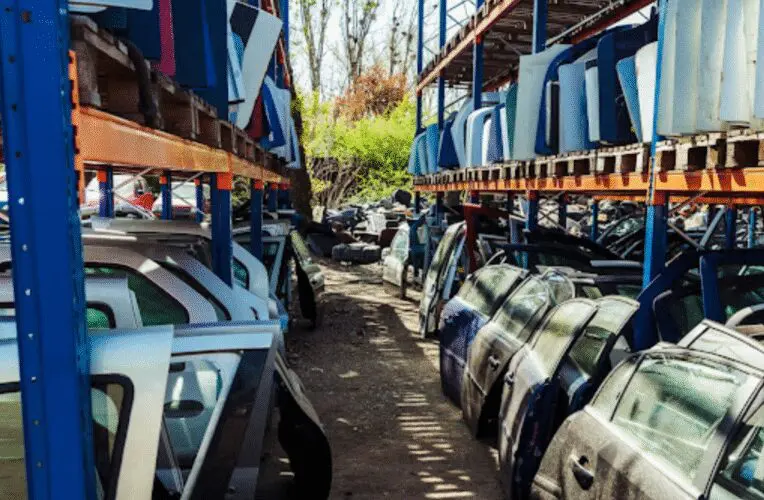The Surprising Environmental Power of Recycling Old and Junk Cars

Recycling end-of-life vehicles delivers significant ecological advantages. Recycling junk cars safely removes hazardous fluids, salvages reusable parts, and recovers valuable metals like steel and aluminium. This process cuts the need for energy-intensive mining and prevents soil and water contamination. It also reduces landfill waste and lowers greenhouse gas emissions linked to manufacturing new auto components. Altogether, responsibly handling scrap cars supports a cleaner, more sustainable environment for communities across Canada.
Table of Contents
- The Environmental Benefits of Recycling Junk Cars
- What Happens to a Car During Professional Recycling?
- Final Thoughts: A Greener Choice for Every Vehicle Owner
Across the country, countless vehicles sit unused – rusting in fields, tucked behind garages, or abandoned on rural properties. While they may seem harmless, these idle cars quietly leak oil, antifreeze, and other toxic substances that seep into the ground and threaten local ecosystems. Over time, corroding metal and decaying rubber add to the burden on landfills and natural resources.
The good news? There’s a responsible, accessible solution. Instead of letting a non-running or damaged vehicle deteriorate, owners can choose to sell used cars in Calgary or elsewhere through certified recycling channels that prioritize environmental safety and material recovery. By choosing to recycle your car, you not only clear space but also put its remaining economic and ecological value to good use.
The Environmental Benefits of Recycling Junk Cars
When a vehicle reaches the end of its usable life, it doesn’t have to become a burden on the planet. In fact, choosing to recycle old cars through certified channels unlocks a cascade of ecological advantages. Far from being mere scrap, these vehicles contain valuable materials and components that, when recovered responsibly, significantly lighten humanity’s environmental footprint.
One of the most compelling scrap car recycling benefits lies in resource conservation.
Steel and iron compose up to 75% of modern vehicles, along with aluminum and copper. Extracting these materials from the earth is energy-intensive and ecologically disruptive. Recycling them, however, slashes energy use by as much as 95% for aluminum and 70% for steel – dramatically cutting associated carbon emissions.
Equally important is the safe handling of hazardous substances.
An average car holds roughly 12–20 litres of fluids – engine oil, transmission fluid, brake fluid, coolant, and refrigerants – each capable of contaminating thousands of litres of water if leaked.Professional junk car recyclers capture and contain these substances, then re-refine or dispose of them according to environmental regulations to protect groundwater and soil health.
Beyond metals and fluids, the auto recycling process prioritizes reuse.
Recycling teams test, clean, and resell functional parts like starters, alternators, doors, and infotainment systems – extending their lifecycle and reducing demand for new replacements.This not only conserves raw materials but also lowers the cumulative emissions tied to production, packaging, and shipping.
Moreover, the broader environmental benefits scrap cars offer when recycled – versus abandoned or landfilled – include reduced landfill volume, prevention of toxic leaching, and support for a circular economy. Unlike many consumer goods, automobiles are among the most recycled products in the world, with recovery rates exceeding 80% in Canada. This success is a testament to how structured, regulated recycling systems can turn end-of-life assets into environmental wins.
What Happens to a Car During Professional Recycling?
Many people assume a “junk” car simply gets crushed and forgotten, but recyclers carefully dismantle, sort, and process each vehicle to maximise recovery and reduce environmental harm. From the moment a vehicle arrives at a certified facility, it enters a carefully managed workflow that prioritizes safety, efficiency, and sustainability.
The journey begins with a thorough inspection. Technicians assess which parts – such as engines, transmissions, doors, or electronics – still function and can be safely reused. They carefully remove, clean, test, and catalogue these components for resale, giving them a second life and reducing demand for new manufacturing.
Next comes depollution – a critical step often overlooked by the public. Technicians drain all hazardous and non-hazardous fluids using sealed systems, collecting engine oil, transmission fluid, brake fluid, coolant, and even windshield washer fluid separately. They also capture refrigerants from the air conditioning system with EPA- and Environment and Climate Change Canada–compliant equipment to prevent ozone-depleting emissions.
Technicians extract key components containing regulated materials after removing fluids. They remove the battery, catalytic converters (rich in platinum), and tires for repurposing into asphalt. They also deactivate and dispose of airbags under strict safety protocols.
Shredding, Separation, and Circular Impact
The depolluted vehicle shell, or “hulk,” is shredded into fragments by powerful machines. Magnets separate ferrous metals, while eddy currents isolate non-ferrous metals like aluminum and copper. Even glass and certain plastics are recovered for industrial reuse.
The result? Up to 85% of the original vehicle is diverted from landfills and reintegrated into the manufacturing supply chain. This closed-loop system not only conserves finite resources but also exemplifies how modern junk car recycling aligns with broader climate and waste-reduction goals. Far from being an endpoint, a car’s retirement can be the start of something far more sustainable.
Final Thoughts: A Greener Choice for Every Vehicle Owner
Letting a vehicle sit unused might feel like a harmless pause, but over time, it becomes an environmental liability. Rust, fluid leaks, and material degradation turn what was once a functional asset into a slow-release source of pollution. Responsibly recycling old cars is an impactful, eco-conscious decision Canadian drivers can make.
Scrap cars, processed by certified channels, provide major benefits: less mining, lower emissions, and cleaner water.
Mechanics recycle cars unseen, but their work affects everything from steel in new appliances to oil in other engines. Every recovered part, safely handled fluid, and reused metal builds a circular economy.
Whether your car is broken, unused, or simply unwanted, its final journey doesn’t have to end in neglect. By opting for proper junk car recycling, you help close the loop on resource use and support a cleaner future. It’s a small action with outsized scrap car recycling benefits – for your community, your country, and the planet.
Read more on
MyCarHeaven are on Instagram. Go check us out and do follow us.
Go visit the MyCarHeaven Instagram page. We post regular quality content, predominantly focused on classic cars, supercars, hypercars and car shows. We also feature all our competitions here, where you will have the chance IF YOU FOLLOW US and you follow the competition entry criteria, you could be in with a chance of winning tickets to the best UK car shows, and other automotive stuff.
Go to the MyCarHeaven Instagram account here. Advertisement
Advertisement Advertisement
Advertisement Advertisement
Advertisement Advertisement
Advertisement




